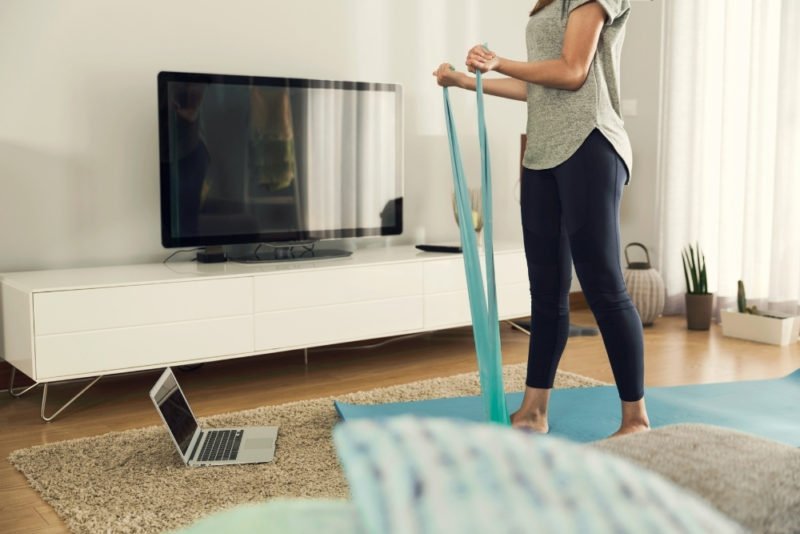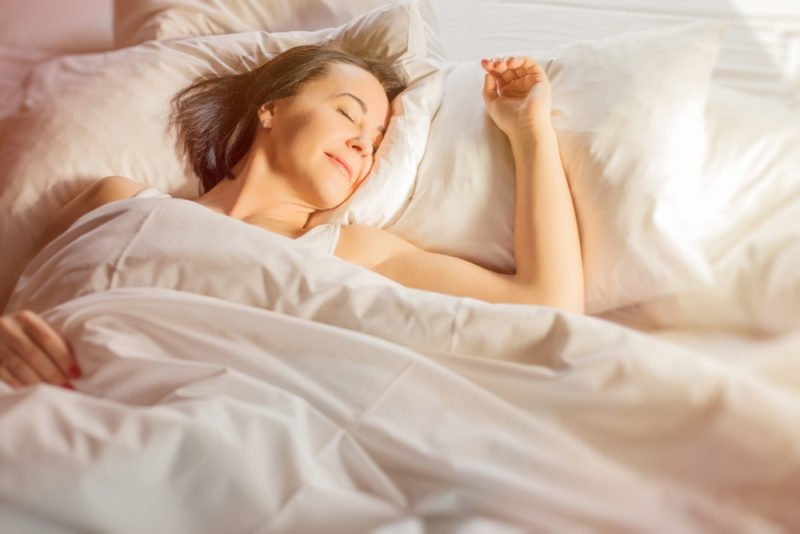
Yes, I know, there’s a lot we can’t control in life — especially now. And some of the uncertainty that cast a shadow over three-fourths of 2020 will seep into at least the first part of 2021. But most of us are fortunate enough to have the ability to meet our basic needs (I fully realize that this is not the case for some). But how you view those needs can mean the difference between surviving and thriving.
You’re probably familiar with Maslow’s hierarchy of needs (at least somewhat). I’m often amazed how easy it is to think we are doing pretty good with getting our basic needs met, yet when we look closely, there are some glaring gaps. Some of those gaps are in the lower, baseline, fundamental needs, some are in the higher, “nice but not quite as necessary” needs, and some fall within multiple layers of the pyramid. Take food for example: simply having food is a base need, but if we aren’t meeting our higher needs, how we relate to food can become complicated.

Basic need #1: Food
Do you need to improve your relationship with food (and I don’t mean going on another diet)? How do you want your eating to feel in 2021? Ping-ponging between chaos and control, or relaxed and peaceful?
If you feel like your eating was “weird” during the pandemic, you are not alone. Rather than descend into the self-blame game, use the experience as information. This is true whether you’ve had eating issues for a long time (and maybe being at home more just made them undeniably obvious), or if they seemingly cropped up out of nowhere.
- Did you subscribe too deeply to all the negative headlines about “pandemic pounds” and try to restrict your food, only to have your “willpower” fail? (Note: Willpower works great until it doesn’t, and there are biological and psychological reasons why it does eventually “fail.” That does not mean that you are a failure.)
- Did news stories about the links between being in a larger body and increased risk of COVID (links that, I should add, are far more nuanced and far less universal that what mainstream media reporting would lead you to believe) make your fearful, and perhaps self-judgmental?
- Did you discover the joy of baking, only to have it crash up against your history of dieting, leading to what felt like chaotic eating (and perhaps even binging)?
Like I said, no matter what concerns you might have about your eating, this is important information that can give you clues about the impact that diet culture has had on you, and likely how robust and diverse your “coping toolbox” is. You can use that information, and those clues, to chart a new path in 2021. If you need some book suggestions to get you started, I would start here:
- “Intuitive Eating,” Fourth Edition, by Evelyn Tribole and Elyse Resch.
- “Embody” by Connie Sobczak
- “Radical Belonging” by Lindo Bacon

Basic Need #2: Movement
I know that many of my clients who started working with me in 2020 expressed concern that they were getting less movement in their lives since the pandemic started. If your preferred forms of movement required access to a gym or a group class, or if you live in a population-dense area where it’s tough to go for a physically distanced walk, it may have felt challenging to pivot to something new.
We’re fortunate to have more and more options for streaming media, and it doesn’t just apply to entertainment media. In last week’s post, I mentioned five of my top picks for streaming fitness programs that offer free trials. I live in an area where I can easily go for a walk outside without coming within 20 feet of another soul, and I do have a small home gym (a bench, free weights, kettlebells and medicine balls), but I also live where the winters are very cold, and walking outside isn’t always pleasant, especially parts of my usual routes that get no sun during the day and can remain very icy. So I needed some fun options for getting my heart rate up.
It took three tries to find something I really enjoyed and felt motivated to do regularly (Barre3). But I also mix it up with Body Groove (which doesn’t offer a free trial, but does have some sample videos that are accessible for free) and “walk at home” YouTube videos from Leslie Sansone.
- I often recommend Body Groove to clients because the videos themselves are body positive and show people of different ages and abilities doing modifications. What I’m not crazy about is the website, which does have a weight loss focus (there really is a big disconnect between the marketing and the videos themselves).
- Similarly, Leslie Sansone talks too much about “burning calories” and “slimming” for my taste, but I kind of like her encouraging, somewhat perky demeanor (which is not always the case for me).
What they both have in common is no complicated choreography. I just don’t have the mental bandwidth for that in the middle of my at-home workday. I can basically decide what I’m in the mood for, check in with my body to see what it needs (in other words, intuitive exercise) and cue it up in a matter of seconds.

Basic Need #3: Self-Care
I’ve said it before and I’ll say it again: self-care isn’t selfish. It also doesn’t have to entail bubble baths and uninterrupted quiet time to journal. Those can be very nurturing, meaningful ways of caring for yourself…unless you hate baths and journaling! And if you have young kids at home, taking an uninterrupted bubble bath may be a pipe dream.
- Self-care is nourishing your body with healthy food (that also tastes good) most of the time, while allowing for treats that have nothing to do with nutrition (such as holiday cookies).
- Self-care is moving your body regularly in ways that you enjoy. Self-care is also giving yourself a day off from planned physical activity if you are in the habit of regular exercise but your body and mind are telling you rather insistently that you need a day off.
- Self-care is doing the unsexy things like getting enough sleep and keeping your home clean and decluttered to a degree that makes you feel good. A cluttered environment can be stressful, but trying to keep up with some rigid standard can also be stressful.
When you aren’t getting enough meaningful self-care, you are less resilient, less able to cope. Your well runs dry. This can lead to behaviors that aren’t healthy in the long run, such as emotional eating, binge eating and possibly turning to the wine and cocktails a little too much. See these as the canary in the coal mine—a sign that your true needs aren’t being met. In the absence of true self care, your body and mind will grab at anything to feel better.
Could your self-care routine use a tune up? Download my free guide below and find out!
This post contains Amazon Affiliate links. As an Amazon Associate I earn from qualifying purchases.
Disclaimer: All information provided here is of a general nature and is furnished only for educational purposes. This information is not to be taken as medical or other health advice pertaining to an individual’s specific health or medical condition. You agree that the use of this information is at your own risk.
Hi, I’m Carrie Dennett, MPH, RDN, a weight-inclusive registered dietitian, nutrition therapist and body image counselor. I offer compassionate, individualized care for adults of all ages, shapes, sizes and genders who want to break free from eating disorders, disordered eating or chronic dieting. If you need to learn how to manage IBS symptoms with food, or improve your nutrition and lifestyle habits to help manage a current health concern or simply support your overall health and well-being, I help people with that, too.
Need 1-on-1 help for your nutrition, eating, or body image concerns? Schedule a free 20-minute Discovery Call to talk about how I can help you and explore if we’re a good fit! I’m in-network with Regence BCBS, FirstChoice Health and Providence Health Plan, and can bill Blue Cross and/or Blue Shield insurances in many states. If I don’t take your insurance, I can help you seek reimbursement on your own. To learn more, explore my insurance and services areas page.






